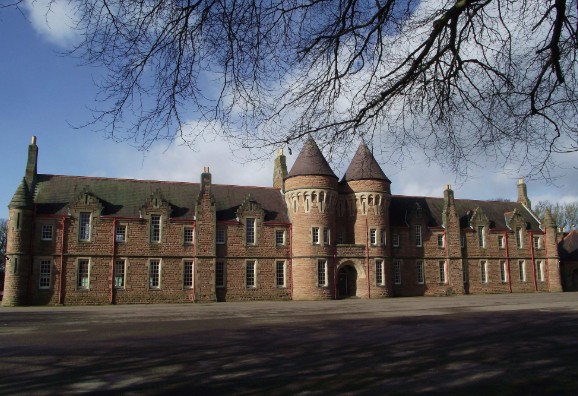Cameron Barracks in Inverness to House Asylum Seekers as Government Ends Hotel Scheme
The historic Cameron Barracks in Inverness is set to reopen its gates, not for soldiers, but for asylum seekers, as part of the Home Office’s latest initiative to phase out the use of hotels for migrant accommodation.
Officials confirmed that the former military base will temporarily house around 900 men, marking a significant shift in the UK Government’s asylum strategy.
The move comes as part of wider plans to utilize disused military sites, with Crowborough Training Camp in East Sussex also being prepared for similar use.
Defense Minister Luke Pollard defended the decision, noting the intention to trial a new model for migrant accommodation.
“Some bases are small, some bases are larger in terms of numbers, but I think the conversation around the bases that are in the news today is about proving this concept, is about seeing whether this works.
We believe that these bases can provide adequate accommodation for asylum seekers,” he told.
☠️ Hotel closures. Barracks reactivated.
The Highland shuffle begins.Cameron Barracks housed 11 Afghan families, briefly.
Now Inverness prepares to absorb its share of the 900 arrivals earmarked for the Highlands.The SNP? Welcoming.
More people, more dispersal, more silence.… pic.twitter.com/i4mgAkt4i9— Stewart Michael (@MikeStewart79) October 28, 2025
While acknowledging that the plan would not offer comfort or luxury, Pollard maintained that the accommodation would meet essential standards.
“This isn’t luxury accommodation by any means, but it’s adequate for what is required, and that will enable us to take the pressure off the asylum hotel estates and enable those to be closed at a faster rate.”
He added that the Ministry of Defense (MoD) was working closely with the Home Office “on standing up several bases at the moment,” emphasizing that coordination with local councils and security planning would be key before anyone moves in.
The new approach, however, raises questions about cost efficiency. When asked whether the barracks scheme might prove more expensive than hotels, Pollard said: “…the public want to see those hotels close.”
He continued: “We’re looking at what’s possible and, in some cases, those bases may be a different cost to hotels, but I think we need to reflect the public mood on this; asylum hotels need to close.”
It is understood that Cameron Barracks and other selected sites will be handed over to the Home Office “in their entirety”, meaning they will not share space with serving military personnel.
Both the Inverness and Crowborough facilities previously provided short-term accommodation for Afghan families evacuated after the fall of Kabul in 2021.
The Government argues that the plan demonstrates progress towards ending the “failed, chaotic and expensive” reliance on hotel rooms.
According to the Commons Home Affairs Committee, the cost of asylum accommodation contracts between 2019 and 2029 has ballooned from £4.5 billion to £15.3 billion, largely due to a surge in applications.
Although the number of asylum seekers in hotels has fallen from a 2023 peak of over 56,000 to around 32,000 this June, that figure remains higher than last year, showing the ongoing strain on Britain’s asylum system.
For Inverness, the move may reignite local debate. Cameron Barracks, a landmark perched above the city since the late 19th century, carries deep military and cultural significance.
The shift from a symbol of Scottish regimental history to a temporary refuge for displaced individuals marks a stark transformation, one that has already stirred mixed emotions across the Highlands.
As the Home Office accelerates efforts to find “alternative, sustainable” housing for asylum seekers, the next few months will test whether these former barracks can provide not just shelter, but also stability, without repeating the mistakes of the hotel era.






